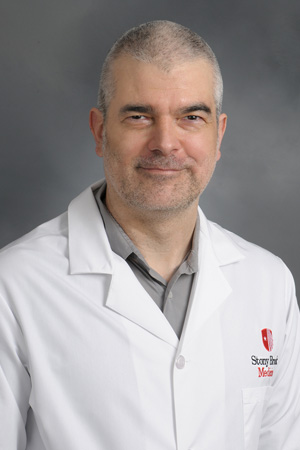Office
(631) 632-1852
Email
eric.brouzes@stonybrook.edu
Stony Brook University
Bioengineering Building, Room G05
Stony Brook, NY 11794-5281

Eric Brouzes, PhD
Associate Professor
Biomedical Engineering
Stony Brook University
Research Program
Imaging, Biomarker Discovery and Engineering Sciences
Department
Department of Biomedical Engineering
Affiliated faculty, Laufer Center for Physical and Quantitative Biology
Faculty member, Institute for Engineering-Driven Medicine
Research Interest
Using microfluidic techniques and advanced molecular biology, our laboratory develops technologies to improve efficiency and accessibility of state-of-the-art methods, such as:
1) Single-cell genomics, where genetic information is gleaned cell by cell. This approach contrasts with conventional strategies that average measurements over cell populations. Averages miss information about critical cell sub-populations that play a critical role in tissue homeostasis or in the development of diseases such as cancer.
2) Spatial genomics, where the spatial context of sequences is preserved to study the crosstalk between tumor and stroma
3) digital PCR for biomarker quantification, in a simple format to enable testing at the Point-Of-Care and in low-resource settings
Education
Postdoctoral: Genetics, Genetics Department, Harvard Medical School (Adviser: Norbert Perrimon), Cambridge, MA
PhD, Interface Physics-Biology, Universite Denis Diderot- Paris7, Institut CURIE, Paris, France
MSc, Interface Physics-Biology, Universite Denis Diderot- Paris7, Paris, France
Engineer: Physics, École Superieure de Physique et Chimie de la Ville de Paris (ESPCI-ParisTECH), Paris, France
Publications
A complete list of publications can be found HERE.

